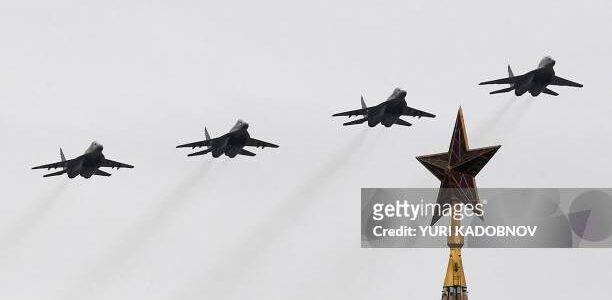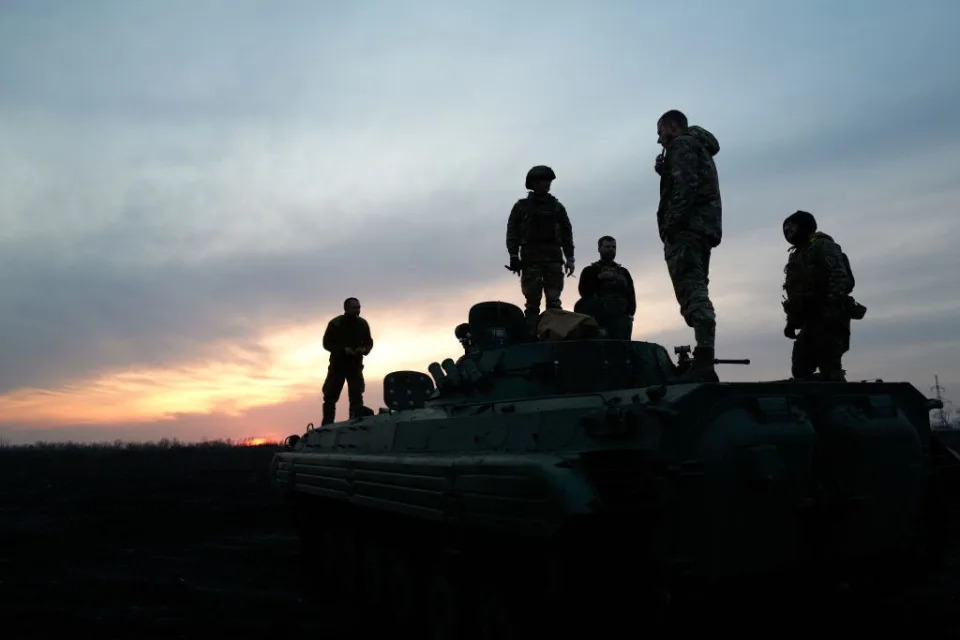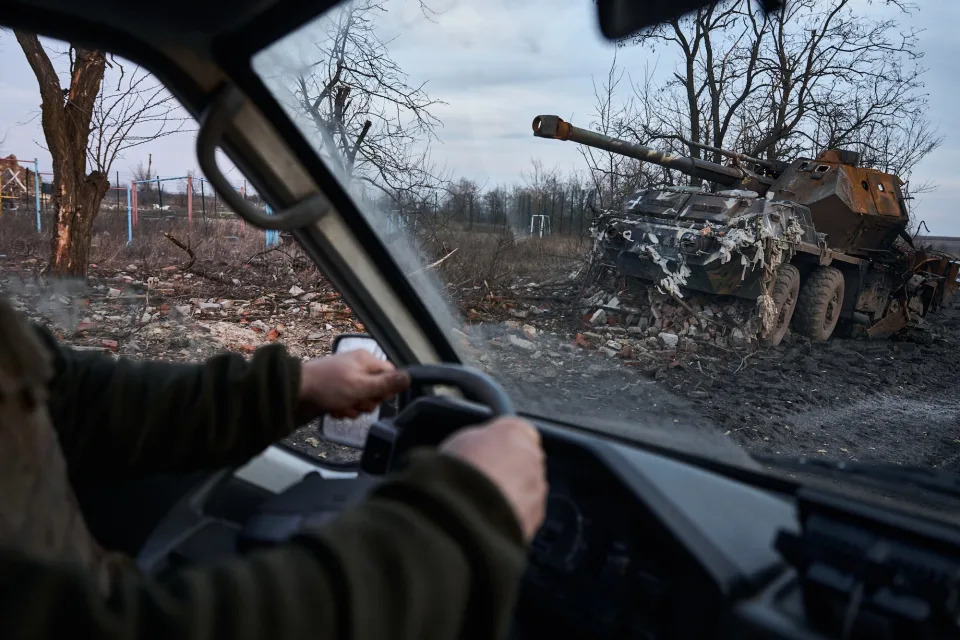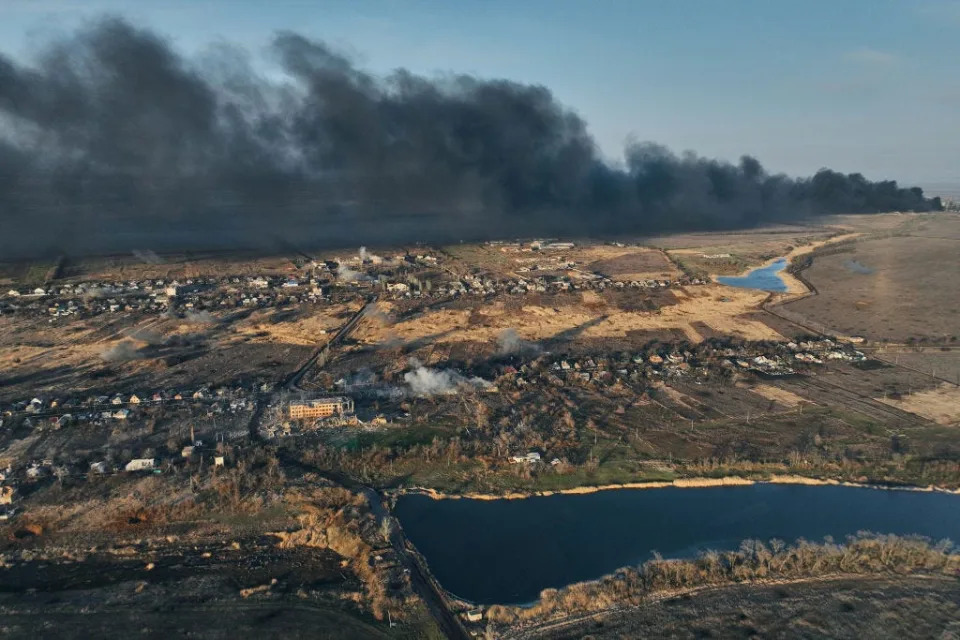
As Russia’s ground forces pushed to capture Avdiivka, its air force appeared to establish air superiority over the war-torn town, clearing the way for critical close-air-support missions, conflict analysts assessed.
Although only temporary and localized, it appears to be the first time Russia has taken control of the skies in a front-line area since their full-scale invasion began almost two years ago. And if it continues or expands, a real possibility as Ukrainian air defenses are under significant stress, it could be “devastating,” war experts said.

On Saturday, Russia claimed victory in Avdiivka, a Ukrainian town northeast of occupied Donetsk. Despite it being hailed as Russian President Vladimir Putin’s biggest victory since the fall of Bakhmut in May 2023 — and a timely one given the upcoming Russian presidential elections next month — it came at a high cost. Moscow has suffered severe losses of both troops and equipment since focusing its forces on Avdiivka last fall.
Confirming its retreat from the area, Ukraine said it was saving troops from being fully surrounded by Russian troops. Over the past few months, geolocated footage of the area had shown Russia slowly and painstakingly advancing to encircle Ukrainian defenders fighting to hold the town.

Upon Russia’s capture of the town, reports said its air forces had been operating in the skies above Avdiivka, supporting ground troops in the last days of the offensive operations and eventually allowing them to overwhelm Ukrainian defenses.
According to The Institute for the Study of War, a Washington DC-based think tank, this was likely the first time Russian forces had been able to do so in Ukraine. Air defenses, particularly ground-based surface-to-air missile systems, have prevented either side from achieving this key element of offensive operations, even locally.
Over the final days of fighting, the Ukrainians reported an increase in the number of Russian glide bombs dropped by fixed-wing aircraft, George Barros, the geospatial-intelligence team lead and a Russia analyst at the Institute for the Study of War, told Business Insider. This activity appears to indicate the employment of a combined arms tactic involving having air forces support maneuver elements on the ground.
“It was this combined arms approach which degraded the Ukrainians’ ability to defend Avdiivka,” Barros said.
Footage out of Avdiivka shows the industrial town, once with a population of over 30,000 people, practically reduced to rubble. The few hundred civilians still there said they huddled in basements and move to quickly collect water and food during any lulls in fierce fighting.

Soldiers on the Armored Infantry Vehicle 2 (BMP-2). The road to the city, the outskirts of Avdiivka on February 14, 2024 in Avdiivka district, Ukraine.Vlada Liberova/Libkos/Getty Images
Unlike the the ground forces, which have suffered substantial losses, Russia’s air force remains relatively intact despite losses of its own, but it hasn’t been able to use them to their full potential.
Ukraine’s air defenses have largely denied Russia air superiority, preventing its jets and aircraft from conducting significant air campaigns since the beginning of the war.
It is unclear if Ukraine can continue to do that, especially considering delays in further Western security aid. Ukraine has said its air defenses and missile stockpiles are running critically low, forcing them to ration and make tough choices on which front-line areas should be prioritized and protected.
Russian missile and drone strikes on major civilian population centers, too, such as Kyiv, are likely forcing Ukraine to prioritize defending those areas over others.
What’s most concerning, Barros said, is whether Ukraine can continue denying Russia unfettered air superiority throughout the theater. If they are unable to do so, then there is little stopping Russia from conducting devastating bombing campaigns, decimating Ukrainian cities and forces on the ground.
Even “recurring temporary localized and limited Russian air superiority,” ISW explained in a recent update, “would likely allow Russian forces to more aggressively pursue operational advances along the frontline.”
It added that “widespread interrupted air superiority,” the kind Russia could achieve if Ukraine cannot better employ its air defenses to prevent it, “would allow Russian forces to conduct routine large-scale aviation operations and bomb Ukrainian cities beyond the frontline to devastating effect.”

Damaged equipment near Avdiivka, Ukraine, in February 2024.Kostiantyn Liberov/Libkos/Getty Images
Avdiivka was briefly captured in 2014 by Russian-backed separatists before being retaken by Ukraine. Since then, it’s endured harsh conflict.
Over the last few months, Russia has largely prioritized capturing the city because it wants a logistics and operational maneuver hub in the Donbas area, specifically in the Donetsk region, White House National Security Council spokesperson John Kirby told reporters on Tuesday.
“They believe that it will give them a stepping-off point, if you will, to conduct further operations in the Donetsk and even in the Luhansk areas. Now, whether they’re capable of actually doing that, we’ll see,” Kirby said.
“I mean, they have struggled with logistics and sustainment, command and control, since the very beginning of this conflict. It’s not likely that they’ve sort of reached some breakthrough capability here in terms of sustaining their troops on the battlefield, but that’s ostensibly what they were trying to achieve by getting Avdiivka.”

A general view of smoke rising from the Avdiivka Coke and Chemical Plant behind the village of Lastochkino, which is under fire from MLRS “Grad” on February 15, 2024 in Avdiivka district, Ukraine.Kostiantyn Liberov/Libkos/Getty Images
It remains to be seen what the exact fallout of losing Avdiivka is. Experts and analysts have suggested the town is not as operationally significant as it is informationally, fueling Russian propaganda against Ukraine and giving Putin fodder for his upcoming presidential election.
“It will not change, in the aggregate, the kinds of defensive works and the defensive operations that the Ukrainians are going to be capable of conducting,” Kirby told reporters, but that doesn’t mean Ukraine isn’t facing a number of problems right now.
Kirby said that Ukraine was forced to withdraw from Avdiivka because it faced dwindling supplies, including artillery ammunition. Kyiv’s decision was the result of “congressional inaction,” he said, referring to the aid being held up by US politics.
Russia does not appear to have capitalized on its capture of Avdiivka yet, and it’s unclear if it can or will.
ISW said Monday that “the tempo of Russian offensive operations” in the area had “reportedly dramatically slowed,” suggesting the capture of the town could be the culmination of Russian operations, just as it was with Bakhmut. This would align with reports on extreme Russian casualties and equipment and vehicles losses in the area and questions about Russia’s ability to sustain operations under those conditions.
Credit: Yahoo News
